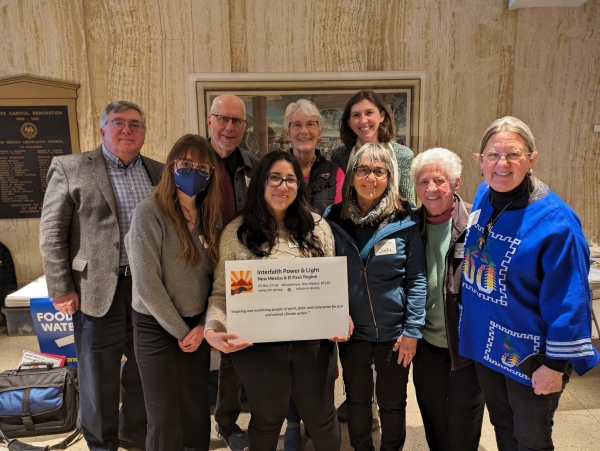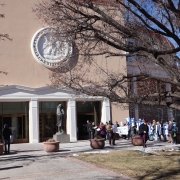IPL New Mexico-El Paso, Citizens Caring for the Future Join 27 Other Groups in Petition to Governor
IPL New Mexico & El Paso and Citizens Caring for the Future were among a group of 29 environmental and civic organizations signing a letter to Gov. Lujan Grisham urging her to line-item veto parts of House Bill 252 that would create an oil and gas severance tax exemption for “stripper well properties” for the costs of complying with the state’s 2021 methane waste rule and 2022 ozone precursor rule. If signed into law, this bill would perversely give companies a tax break for costs incurred to protect the public against hazards of these businesses’ own creation.
We adapted the above paragraph from an article written by The Western Enviromental Law Center. Here is the rest of the piece
“In its analysis, the New Mexico Legislative Finance Committee found the exemption could cost the state $17.2 million in revenue between fiscal years 2025 to 2028, reduce bonding capacity by $18.8 million over the same time period, increase the Oil Conservation Division’s annual operating costs by $200,000, and require two new full-time-equivalent OCD employees. This tax giveaway to oil and gas operators therefore comes at the expense of the severance tax’s permanent fund and agency capacity at the precise time the state should be leveraging its resources to prepare for the inevitable decline of oil and gas revenue and production.
“House Bill 252’s oil and gas severance tax exemption reflects well-founded public concerns that the political deck is decidedly stacked in favor of the oil and gas industry, not the people of New Mexico,” said Erik Schlenker-Goodrich, executive director of the Western Environmental Law Center. “The oil and gas industry secured this severance tax exemption in the shadows while gutting sensible oil and gas reforms backed by the Lujan Grisham administration and other state officials. Line-item vetoing HB 252’s oil and gas severance tax exemption provides Gov. Lujan Grisham with an opportunity to stand strong for the people of New Mexico.”
Several state agencies expressed concern with the severance tax exemption:
- The New Mexico Taxation and Revenue Department wrote in its fiscal impact report that the exemption “[w]ould set a precedent in tax policy that businesses may lower their tax liability to financially support complying with other business regulations and laws for operations. All businesses across all industries have business costs to meet varying laws, regulations and reporting. This would erode horizontal equity among taxpayers.”
- The New Mexico State Land Office warned the exemption “[w]ould incentivize producers to continue operating poorly producing stripper wells [and] could result in the state/taxpayers incurring the legacy remediation and reclamation costs of the wells.”
- And, as observed by the Attorney General, “[t]he Severance Tax Act and the Incentives Act already give favorable tax treatment to production from stripper wells.”
“A fundamental economic principle is businesses should bear the external social costs they create,” said Kayley Shoup, community organizer for Citizens Caring for the Future. “Oil and gas operators—not the public—should pay the compliance costs of reducing methane emissions from oil and gas operations to protect our climate and to reduce toxic air pollutants that harm public health. A tax break to the industry that is polluting the air where my neighbors and I live in the Permian Basin is simply not warranted.”
The groups signing on to the letter include the Western Environmental Law Center, 350 New Mexico, Albuquerque Unitarian Universalist Fellowship, Center For Civic Policy, Chaco Alliance, Citizens Caring For The Future, Earth Action, Inc., Earthworks, Environmental Defense Fund, FracTracker Alliance, Indivisible Albuquerque, League Of Women Voters New Mexico, Moms Clean Air Force New Mexico Chapter, New Energy Economy, New Mexico Climate Justice, New Mexico Interfaith Power And Light, New Mexico Sportsmen, New Mexico Voices For Children, New Mexico Voters For Children Action Fund, New Mexico Wild, Progressive Democrats Of America – Central New Mexico, ProgressNow New Mexico, Prosperity Works, Rio Arriba Concerned Citizens, Rio Grande Indivisible, New Mexico, San Juan Citizens Alliance, See (Social Eco Education), and WildEarth Guardians.”



